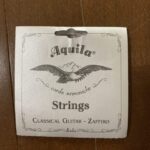I strung up a Perla from Aquila, a manufacturer that makes some pretty unique strings. They are usually better strings than I thought they would be.

The following article is a summary of the string reviews/feedback/information articles on this blog:

As to Aquila, refer to the following article:

Treble strings made of plant-derived materials
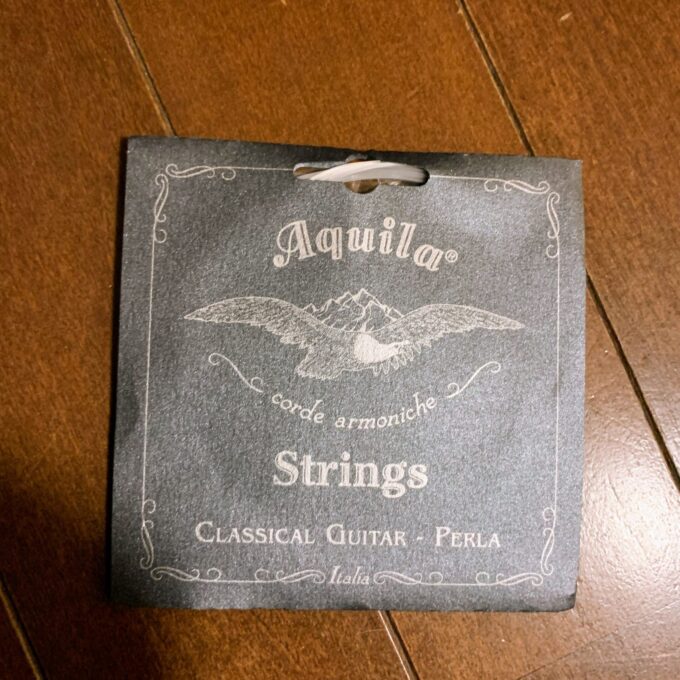
The main feature of Perla is the use of plant-derived materials for the treble strings: 63% of this material, called Bionylon, reduces the carbon footprint by 30%.
…Actually, Aquila is a manufacturer that often changes the products with keeping the name, and the current Perla is Bionylon, but a while ago it was Super Bio Nylon. In addition, it used to be a different material, and it’s very complicated.
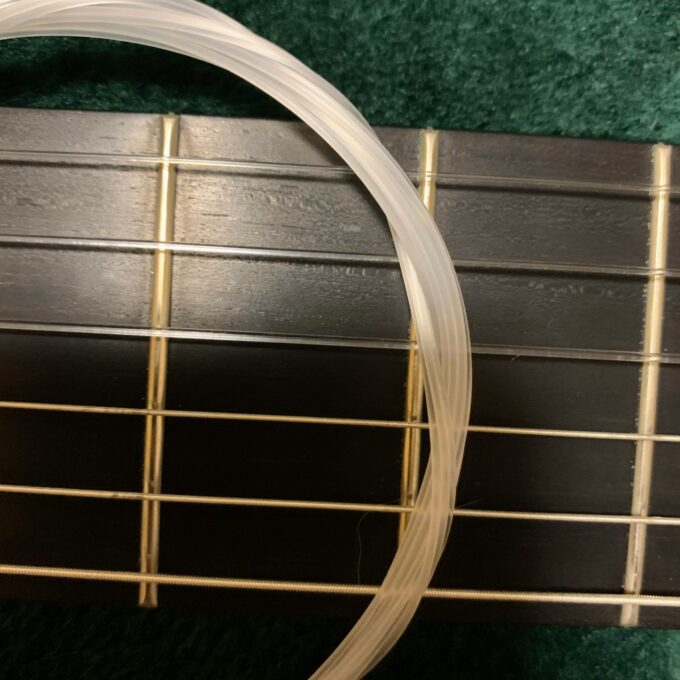
It looks like this and is whitish. It’s not slippery to the touch, but a little resistant and unique.
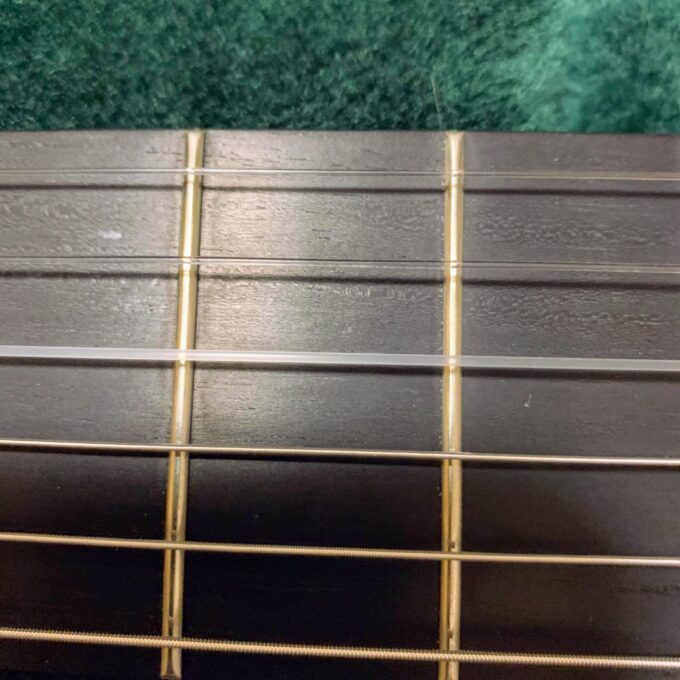
The tension is about the same as a normal tension guitar string.
The bass strings are Nylgut
The core wire for the bass strings is not nylon or carbon, but a proprietary material called Nylgut.
According to Aquila, the sheep gut strings that were used in the past were about as hard as a nylon string and a carbon string. Nile gut is designed to achieve this hardness and is made from three different types of plastic.
It’s called “Gut” but it’s made of plastic, so it’s not as hard to use as Gut.
It is also said to be less hygroscopic than nylon, so you can expect a more stable sound.
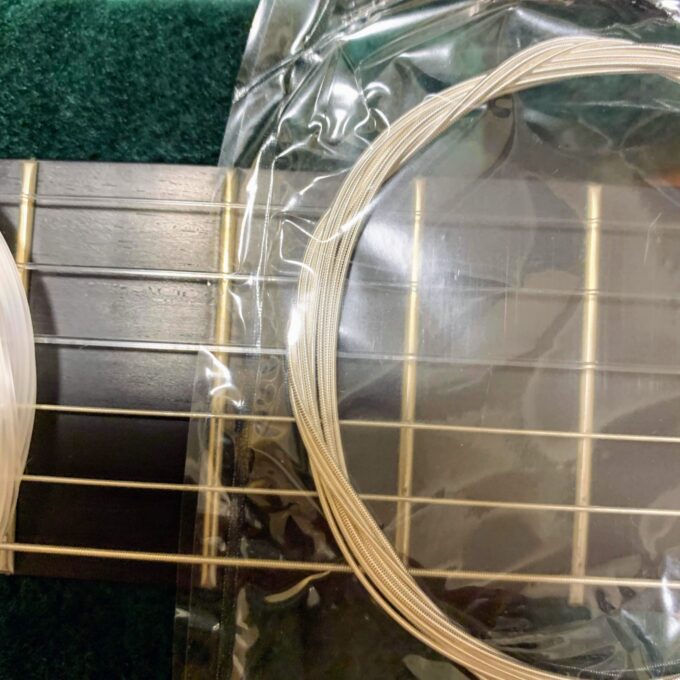
This is what it looks like, and it’s normal.
I like the fact that the bass strings come in an airtight package.
Sound is surprisingly (?) normal
I thought it would make an unusual sound because of the unusual materials used, but surprisingly it was a normal sound.
The treble strings sounded quite fuzzy right after I strung them. However, after a day, they sounded more like nylon strings. The third string, however, is not as fuzzy as the nylon strings. It doesn’t have a sharp sound like carbon, but it has a good sound of vibrating woody wood.
The aforementioned non-slippery surface also makes it a good place for nails and fingers.
On the other hand, I think nylon strings are better in terms of sound variation. Also, the sound is more subdued, so the mids and basses are more prominent.
The bass strings also don’t have metallic glare sound. However, if you play with your fingernails, you will hear a metallic sound, and if you play with your flesh, you will hear a soft sound, and I feel that the sound changes a lot. I thought the sound would be more like an old instrument, but it was not so.
Surprisingly normal-use strings, also good for eco-conscious people
It is a normal string than I thought.
The treble strings are made of nature-friendly materials, so it’s good for eco-conscious people.
…But as long as the bass string is a metal wound string, it can’t be completely eco-friendly.
(P.S.): It doesn’t have that much sonic brilliance, so I felt it had a longer lifespan. The sustain is short, like the Zaffiro.


